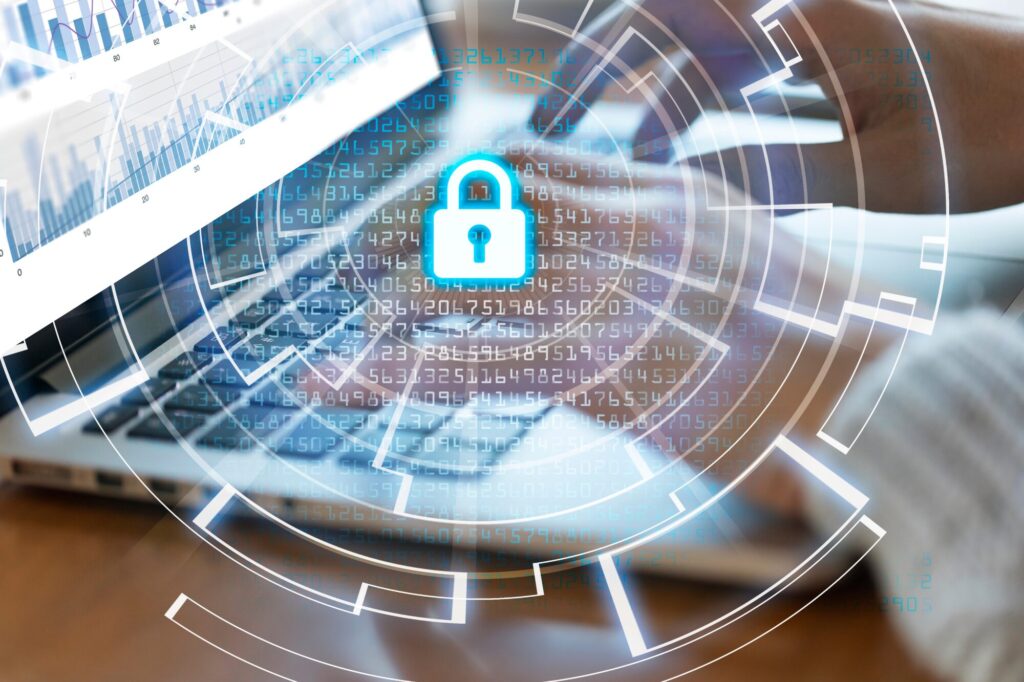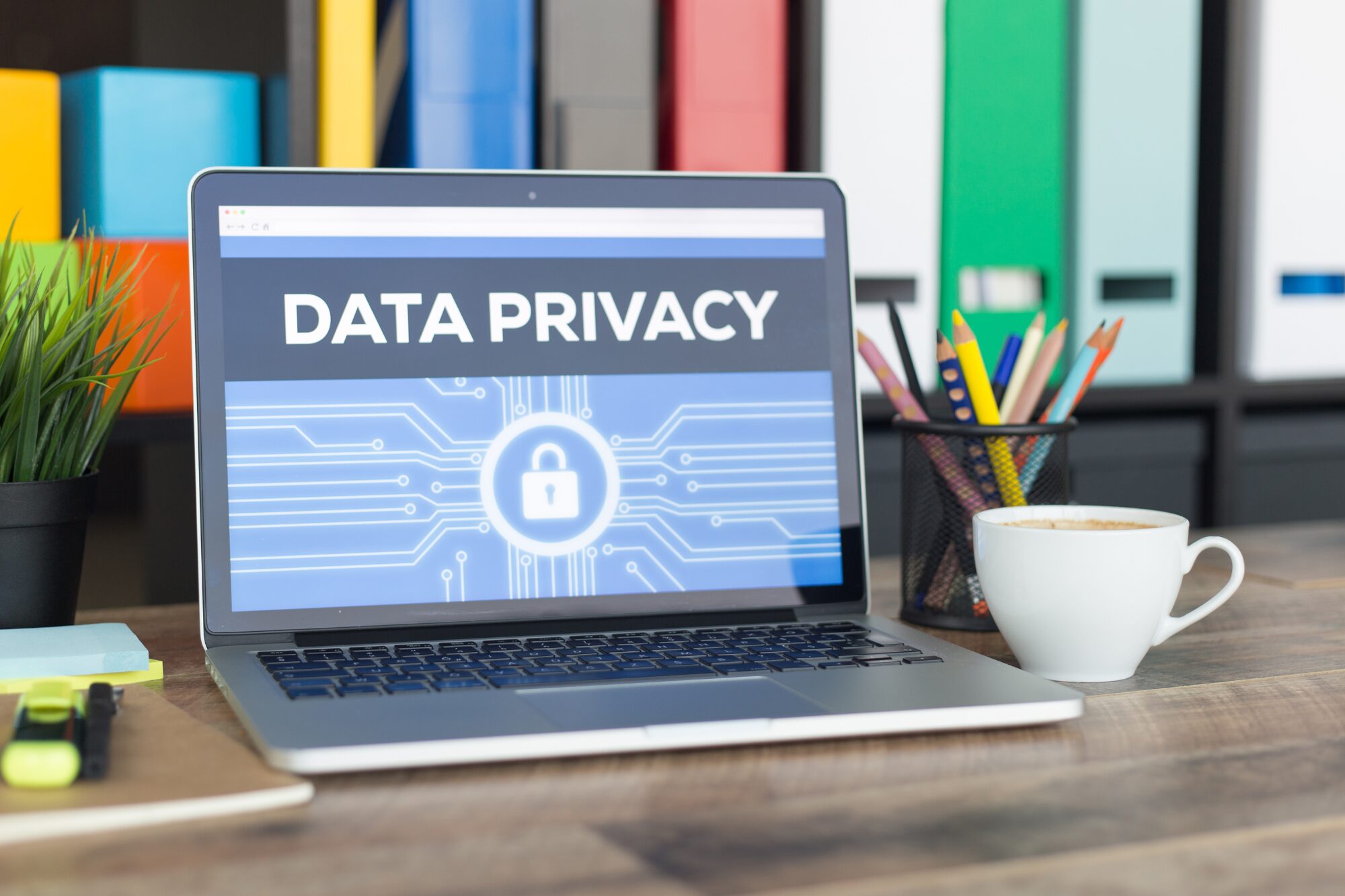Professionally and personally, most of us spend a lot of our time online. We use our smartphones and our personal computers for everything from work to social connections to our primary source for entertainment and news, the Internet is unavoidable.
Even our grandparents or parents who lack tech savvy religiously use email or have learned to rely on online portals to pay bills. Although brands employ cybersecurity protocols to keep our personal data safe, how safe is our confidential information, really?
The risk of exposed personal details online negatively impacts U.S. consumer opinions about sharing their information on even the most secure websites. These data privacy concerns are valid — cybercriminals look for security vulnerabilities to target your information, hackers can steal your identity, and data brokers share your personal details with their clients.
Thankfully, there are federal and state laws in place to help safeguard consumers’ data, and steps you can take to protect yourself online.
What is data privacy?
Data privacy (also known as information privacy) is the protection of personal data shared with a company. It requires an individual’s consent on what information is also shared with a third party.
American consumers want control over how their personal data is used, and data protection laws help to promote an individual’s control. Data privacy involves the following:
- Data Collection: Control over how data is gathered. Data collection methods include mailing lists, biometrics, credit card numbers, IP addresses, email addresses, and tracking cookies
- Data Deletion: How companies delete or destroy your data
- Data Sharing: How your data is shared with third parties and for what purpose
- Data Storage: How companies store your data — what measures are in place to keep personal data safe and secure?
- Opt-Out Options: Does a company include an option for you to opt out of tracking cookies or third-party sharing?

Why data privacy is important
Data privacy is vital to the safety of everyone who uses the Internet or shares their confidential information with a company or with the government. Current and future federal and state data protection laws help to address data privacy concerns by allowing individuals to have some autonomy over how their personal information is shared.
Data privacy also provides the following:
- Financial protection
- Identity protection
- Increased consumer trust
- Legal compliance with data privacy laws
- Prevents unauthorized access to personal information
- Protects your financial information and medical records
- Reduction in cybercriminal activity
- Safeguards against identity theft
- Sets the standard for ethical data-sharing practices
What to know about U.S. data privacy laws
U.S. privacy concerns began long before the dawn of the Internet — the first data privacy and protection law, the Privacy Act of 1974, is over 50 years old and was passed to protect American consumers from government privacy invasions.
Most federal and state privacy laws prevent different types of personal data from restricting personal rights, used for malevolent purposes or being shared with unscrupulous third parties.
For example, the Gramm-Leach-Bliley Act, passed in 1999, requires financial institutions to disclose their data sharing policies, create and implement robust cybersecurity systems, protect sensitive consumer data, and allow customers an “opt-out” option for data sharing.
A few examples of other state and federal laws that address data privacy concerns include:
- California Consumer Privacy Act (CCPA): (State) Gives consumers the right to ask businesses to delete their personal data, request information about their personal data, opt-out of third-party sharing or selling of personal data, and protects consumers from discrimination for exercising these rights.
- Children’s Online Privacy Protection Act (COPPA): (Federal) Gives parents control over what information websites can collect from their children who are under the age of 13
- Fair Credit Reporting Act (FCRA): (Federal) Limits who can view your consumer credit report and what they can use it for, requires employers to attain an individual’s consent before accessing a credit report, and requires credit bureaus to investigate and correct disputed information.
There are several other federal-level data privacy laws that protect financial, medical, and educational personal data, and as AI use rises, more may be on the way. Although California led the charge on state data privacy laws, many other states (including Colorado, Maryland, and Oregon) have followed suit and passed state-level consumer data privacy laws.
American consumer opinions about data privacy
Data privacy is a bipartisan issue in the U.S. and most American consumers care deeply about the protection of their personal information. Consumer opinions on data privacy are fairly widespread, and many Americans from all walks of life strongly support federal regulations for data protection.
According to the Pew Research Center, the primary data privacy concerns for American consumers include:
- How the government uses their data
- Lack of transparency on how data is used
- Lack of regulations on how AI can be used to steal data
- No trust in social media platforms
- Online privacy for kids
- Tracking by brands and advertisers
What are companies doing with our data?
Our personal data is crucial to the success of many online brands. However, they don’t always use it for nefarious purposes. Personal data allows companies to improve products and the customer experience.
Companies might use our personal data for marketing and advertising, statistical analysis, medical research, and credit and loan evaluation.
Is your personal data at risk?
In short, yes, but you can proactively increase your awareness and take cybersecurity measures to help protect yourself. It’s vital to know how your personal information might be shared, and what aspects of data sharing are in your control.
Privacy challenges of the digital age
Increasingly, most of us spend a lot of time online. Technology advances so rapidly that addressing online data privacy concerns on your own may seem overwhelming. However, by understanding how your personal data is used and the inherent risks you may be exposed to, you become better equipped to protect your personal data.
Some of the privacy challenges of life in the digital age include:
- Data Breaches: Hackers target cybersecurity vulnerabilities in business operating systems to access personal data and use it for malicious activities such as identity theft and selling sensitive information on the dark web.
- Data Collection: Some companies may collect your personal data without transparency or a clearly stated purpose.
- Manipulation of Algorithms: Your Internet searches and social media activity might be used to manipulate targeted advertising and highlight content that you don’t want to read.
- Surveillance: Corporations and government agencies may use surveillance technology to track your online activities, including social media commentary, and use it for data collection and other opaque purposes.
- Targeted Cyberattacks: Using your personal data to target you through phishing attacks, malware links, and other cyberattacks.

How to protect your private data online
Currently, there’s no way to completely erase the risks of personal data exposure online. The good news is that there are proactive measures you can take to address your data privacy concerns and enhance your cybersecurity.
Here are a few steps that you can take to protect your private data online.
Use Personal Data Removal Tools
Personal data removal tools like DeleteMe control what personal information you share online by monitoring your data and where it appears, and removing your personal information from data broker databases.
Use Two-Factor Authentication
Most websites and online payment portals give you the option to use two-factor authentication. This cybersecurity measure makes it more difficult for your personal data to fall into the wrong hands.
Use a VPN
VPNs like CyberGhost cloak your IP address and geolocation and prevent tracking cookies. This makes it more difficult for your online activity to unintentionally reveal sensitive personal information.
Use the Free Personal Data Scan Tool
The free Personal Data Scan tool from What Is My IP Address scans people searches and over 80+ data brokers to help you discover where your personal data appears online and how to control this.













